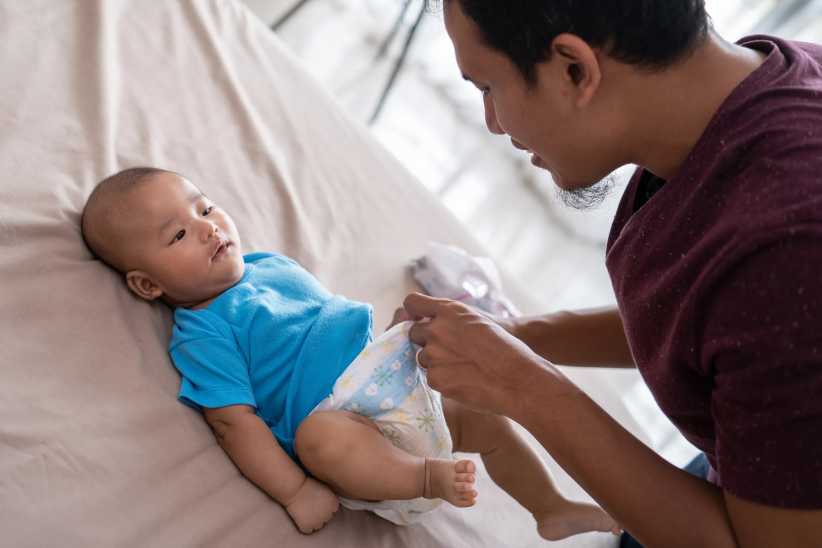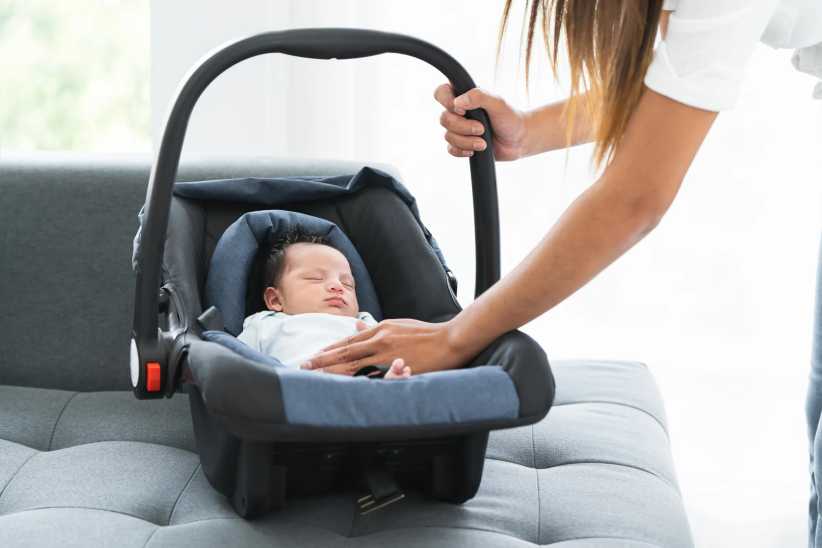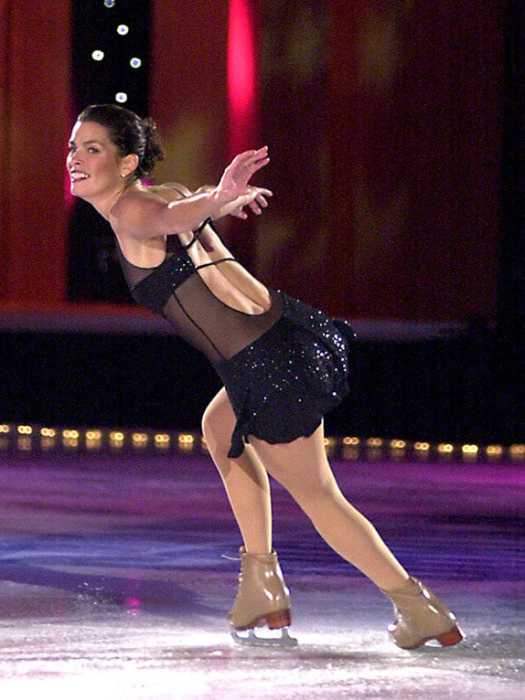When was the last time you were at a neighborhood playground and heard a father yell to his 3-year-old son, “Share!” Then you turn around and see a mother tell her 4-year-old daughter, “Say ‘thank you.’” Two minutes later, you spy a 5-year-old hitting another child and his nanny telling him, “Behave yourself.”
These are all familiar scenes of how adults are speaking to and interacting with children in their communities, schools, and homes across the country. According to author Jennifer Lehr and her book “Parentspeak: What’s Wrong with How We Talk to Our Children — and What to Say Instead,” these sayings, no matter how well-intended, can have a negative impact on children.
Lehr writes that although neuroscientists argue that children’s “brains aren’t fully developed” until their mid-20s, kids are human beings whose thoughts and feelings should be respected by the adults who care for them. Clarifying that children are not subservient underlings who should do what they are told to all the time, Lehr writes that kids have the right to speak up for themselves when they are feeling overwhelmed or uncomfortable.
One word Lehr thinks should be eliminated from our vocabulary is “misbehavior.” She believes that when parents tell their children, “behave yourself” that this phrase is inappropriate to describe children’s actions.
Instead, Lehr believes every child has essential needs and when they are not being met, the child acts in the most effective way possible to get what he needs. Lehr explains, “In the 1960’s, [American psychologist] Marshall Rosenberg developed a method of communicating and solving conflicts known as nonviolent communication that relied on identifying the underlying need or needs driving our behavior in order to find more mutually acceptable ways to meet the need.”
Citing a real-life example in the book that Lehr remembered from one of her parenting classes, she shares the story of a father who would feed his baby breakfast at the table in the morning. Every time the father fed the baby, his 3-year-old son would stand up on the table and bang the chandelier with his hands.
Instead of punishing the child, the father asked his son to explain why he was acting the way he was. The father found out that the older child felt excluded from the breakfast scene. Once the father identified the problem, he and his son brainstormed together to figure out that when the 3-year-old helped his father feed the baby, he felt included. Coincidentally, the older son also stopped climbing up on the table to hit the chandelier.
Furthermore, Lehr thinks that parents use phrases with their children about ideas that they are not yet able to comprehend. When a father tells his three-year-old son to “share” his toy drum every time another child wants it, he is not only ignoring his own child’s right to play with his toy in the time he needs, but the parent is expecting the toddler to feel empathy — a concept most children don’t develop until they are 6 or 7 years old.
Another phrase quoted in the book is when parents tell their kids to say “thank you” every time something is given to them. Instead of getting upset when such phrases aren’t being used, the parent can tell their child that they don’t feel they are being appreciated when spoken to in such a demanding manner. Lehr also has the adults examine how they speak to their children since most kids model their behavior after their parents’ actions.
The most overused expression is probably “good job,” says Lehr, which parents can apply to anything their child does that pleases them. She recounts when she observed a 4-year-old girl who didn’t want to put her coat on to go outside. Instead of asking her child why she didn’t want to wear her coat, the mother told her daughter “good job” four times — after every successful effort the girl made to put on her coat.
Not only can parents use the phrase “good job” to manipulate their kids to do things they want, it has a harmful effect on children as they learn to do only things that please their parents. Later on in life, these children will become adults who continue to people-please and never grasp a true sense of their own genuine thoughts, feelings, or needs.
Instead of constantly “good jobbing” every developmental milestone a child makes, sometimes it is best to just stay silent. Another way parents can avoid saying “good job” is by simply stating what they are observing. Lehr says she complimented her son on his fort-building project by saying, “This is so elaborate … This is your longest construction ever! What a lot of work.”
Lehr also recommends adults respect their children’s efforts at creating physical boundaries. She describes tickling as a manipulative way for a parent to get a sad child to smile. It can also turn into a nightmare for some children who cannot express their desire to have the tickling stopped while the parent presses on.
Lehr says adults should never tickle children who cannot speak. If parents tickle older children, they should discuss together a signal the child can give the adult to have the tickling stopped. Although tickling seems like innocent play, Lehr reminds us, “If a child is taught as a toddler that ‘no’ or ‘stop’ just means someone will force you into their arms or keep tickling you or kiss you anyway, what do we expect from them as teens and adults?”
Another illustration of this is when relatives come to visit, the parents automatically tell their children, “Give Grandma a kiss.” Again, disregarding how their children are actually feeling, parents expect children to kiss or hug relatives on command. Some children need to warm up to adults they have not seen in a while before making physical contact.
Parents, of course, want their visitors to feel welcome in their home. If parents and children brainstorm together, they can find alternative ways to initially welcome family members such as the child taking a coat, offering a beverage, or drawing a picture for the guest.
Another faux pas parents make is asking their children, “Do you want a time-out?” Lehr says that when children are upset, they need to be with their parents to help them identify their feelings and solve problems. Not only does a “time-out” isolate a child, but the parent is doing the exact opposite of what the child needs.
If a parent sends a child away every time he acts inappropriately, he will begin to fear abandonment. He will think he can only act in certain way to be with his parents. No matter how a child acts, the parent must love, support, and help their child. When a child knows he is loved unconditionally, he feels more secure, more aware of his emotions, and more likely to take healthy risks.
The book ends with the most detrimental phrase of all: “Do you want a spanking?” Children who are spanked become more aggressive and delinquent as well as more likely to abuse drugs and alcohol and develop mental illness. When children are physically abused, Lehr writes that “the prefrontal cortex of their brains” is affected, which lowers their IQ.
While there are 50 countries that have outlawed corporal punishment of children, the United States is not one of them. In fact, Lehr writes, “A 2013 Harris Poll tells us that 81 percent of Americans believe it’s acceptable to ‘spank’ a child.”
While 100 countries worldwide have banned corporal punishment in schools, Lehr adds that the United States does nothing to physically protect students from their teachers in classrooms.
“Estimates from the federal Department of Education during the 2012-2013 school year alone” show thousands of children across the United States receiving corporal punishment in classrooms.
“A disproportionate number of those children were boys and African-Americans,” Lehr writes, “And even more tragically, many suffered from disabilities.”
Lehr ends her book on this sad note, perhaps hoping that these facts will provoke us, as a country, into action to advocate for our children’s mental and physical wellbeing.
Allison Plitt is a frequent contributor to NY Parenting and lives in Queens with her 11-year-old daughter.












